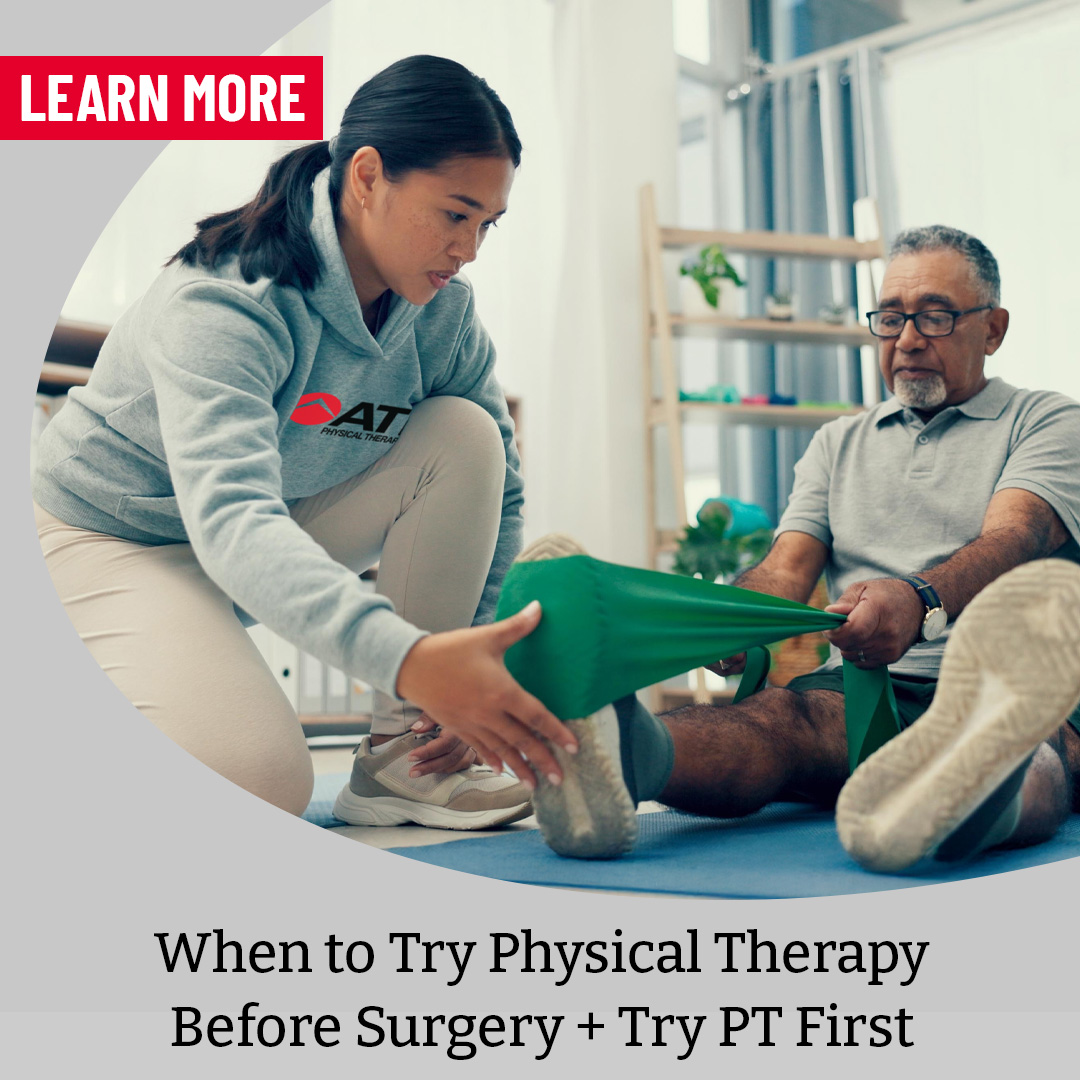Select a category:

When to Try Physical Therapy Before Surgery
Reviewed and contributions made by VP of Clinical Development Thomas Denninger Surgery can be an essential medical intervention, but it […]

Stretch to Success: The Best Pre- and Post-Workout Stretches to Add to Your Routine
Do you have any fitness-focused New Year’s resolutions? Perhaps you want to run a marathon, complete your longest bike ride […]

Physical Therapy vs. Chiropractor: Which is Right for You?
Reviewed and contributions made by Sr Director Access Management Operations Dallas Reynolds, PT, DPT, Cert. DN, COMT There is no […]

ATI Physical Therapy Named One of Oregon’s Top Workplaces
This marks the clinic’s first-time recognition based on employee feedback and key cultural factors Bolingbrook, IL, September 29, 2024 – […]

Tips for Living With Chronic Back Pain
Reviewed and contributions made by Sr Director Access Management Operations Dallas Reynolds, PT, DPT, Cert. DN, COMT Living with chronic […]

Most Common Shoulder Injuries in Sports
Reviewed and contributions made by Sr Director Access Management Operations Dallas Reynolds, PT, DPT, Cert. DN, COMT Shoulder injuries are […]